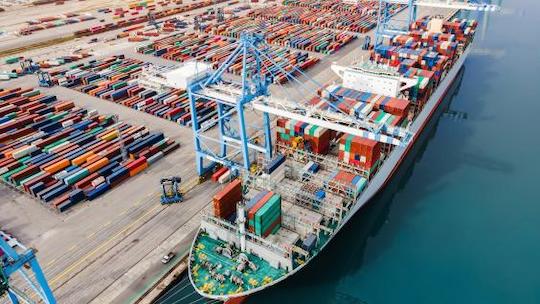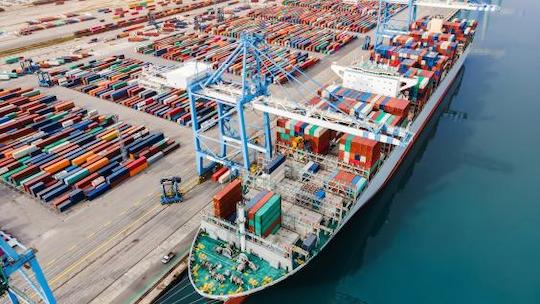HOUSTON – (April 25, 2023) – Chinese companies may have an extreme advantage in the global market thanks to the country’s impressive logistics data management platform, according to a new report from Rice University’s Baker Institute for Public Policy.
Beijing seeks to minimize its foreign dependencies while making trade partners more dependent on China, and superior logistics data tools represent an opportunity to advance those efforts, argue Gabe Collins, the Baker Botts Fellow in Energy and Environmental Regulatory Affairs at the Baker Institute, and Jack Bianchi, fellow at the Center for Strategic and Budgetary Assessments.
“Logistics data management is an area where China already approaches global leadership status, and Beijing may be on the cusp of creating a new and highly valuable asymmetric dependency that it could exploit for strategic gain,” they wrote.

China’s state-supported National Public Information Platform for Transportation and Logistics (LOGINK) aggregates data from various sources — including domestic and foreign ports, foreign logistics networks, hundreds of thousands of users in China and other public databases — to provide the most comprehensive picture available of the world’s logistics activities.
The authors’ study of LOGINK’s evolution demonstrates how Beijing has quietly accrued substantial political, economic and military power not only through constructing, owning and operating individual pieces of foreign logistics infrastructure such as ports, but also via the vast amounts of data flowing through its system.
“Within the logistics market, LOGINK helps consolidate Beijing’s influence over the global maritime transport system, which moves an estimated 90% of the global goods trade,” they wrote. “Beijing can quietly feed insights from LOGINK to preferred (Chinese) logistics firms at preferential prices, a key competitive advantage in a third-party logistics market that a recent study by the U.S.-China Security and Economic Review Commission estimates to be worth $1 trillion annually. Giving (Chinese) firms such an information edge would help them to systematically underbid foreign competitors and would drive even more data flow over LOGINK at the expense of other systems, further cementing Beijing’s informational advantage.”
Collins and Bianchi argue that foreign entities dependent on the platform may be incentivized to conform to Beijing’s wishes or lobby for its interests.
The authors say Washington should focus on China’s strategy to control and shape such critical internet-connected information networks and ecosystems, which they say has been overshadowed by Congress scrutinizing individual Chinese companies such as Huawei, ZTE and ByteDance, the parent company of TikTok.
“Beijing could use LOGINK to manipulate, corrupt or obscure trade information that the U.S. and its allies might require to identify sanctions targets and enforce punitive measures,” they wrote. “If the platform achieves sufficient scale, such manipulation could potentially be done in ways that are subtle, hard to detect, and which could be blamed on shortcomings of a specific user, as opposed to being the result of action by LOGINK itself.”

